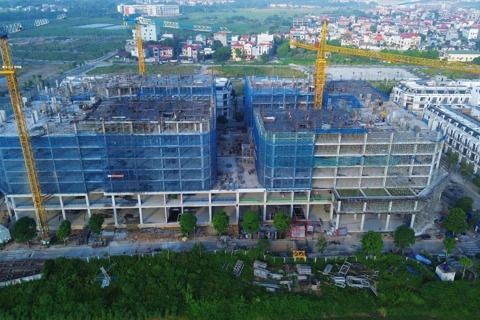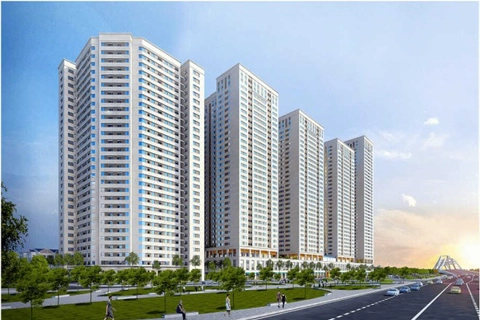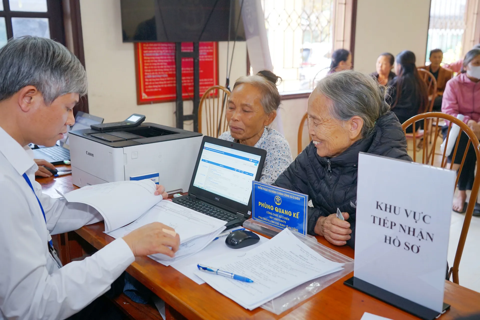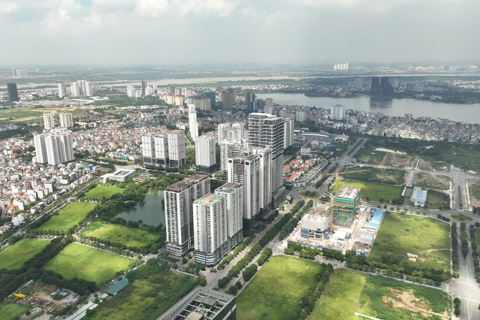Hanoi property prices rise to 5-year high
Efforts to prevent property prices from rising have been left unfinished due to the low supplies of social housing and many projects remaining frozen on legal issues and complicated administrative procedures.
The average prices of mid-range apartments in Hanoi rose by 9% year-on-year in the first quarter of 2022 to a five-year high of US$1,278 per square meter, according to a real estate market report from CBRE.
| Prices of mid-range apartments in Hanoi rose to a five-year high. Photo: The Hanoi Times |
In addition, the price ranges of luxury apartments also witnessed a hike by 3-5%, thanks to a high absorption rate of 80%, it added.
Experts noted while the pandemic has somehow impacted people’s income levels, housing prices continue to go up due to shrinking supplies, referring to a 40% year-on-year decline in the Hanoi market during the first quarter.
It is estimated Hanoi would have 54,000 new apartments in the next two years, which are mainly concentrated in suburban districts of Bac Tu Liem, Dong Anh, Long Bien, Hoang Mai, and Thanh Tri.
“For a large city like Hanoi, such a figure is significantly lower compared to the demand,” Nguyen Van Dinh, chairman of the Vietnam Association of Realtors, told The Hanoi Times.
“Given the ongoing supply-demand, it is unlikely that the apartment prices would decrease due to scarce supplies. High inflationary pressure and rising input materials would further push the prices higher,” he added.
Chairman of the Ho Chi Minh City Real Estate Association (HoREA) Le Hoang Chau said the mismatch in market supply and demand may pose long-term risks and instability.
Meanwhile, efforts to prevent property prices from going up have been left unfinished due to the low supplies of social housing and many projects remaining frozen on legal issues and complicated administrative procedures.
“Rising real estate prices would pose severe consequences on Vietnam’s national strategy on housing development,” Chau told The Hanoi Times.
“Smooth implementation of commercial housing projects would help keep operational expenses of property developers at around 5% of the total costs. However, the long-drawn investment procedures with high costs have forced them to raise product prices to ensure profitability,” he continued.
Chau suggested a greater simplification in construction procedures towards less time for settling administrative procedures.
In addition, Chau called for Vietnam to soon launch the national low-budget apartment project with incentives in terms of lands, taxes, and credit, to further encourage investors in this field.
Director of Savills Vietnam Su Ngoc Khuong said the task to curb housing prices at present is hugely difficult given the high inflationary pressure around the world and ongoing instability in the global economy and politics.
“Real estate has been seen as a way for investors to hedge against risks, so low-income groups would find it harder to purchase houses in the coming time,” Khuong told The Hanoi Times.
“The most important issue would be to set up a land fund for housing development, especially social housing, and low-budget commercial apartments. But the issue would depend on the relevant authorities removing legal bottlenecks in this regard,” he said.












